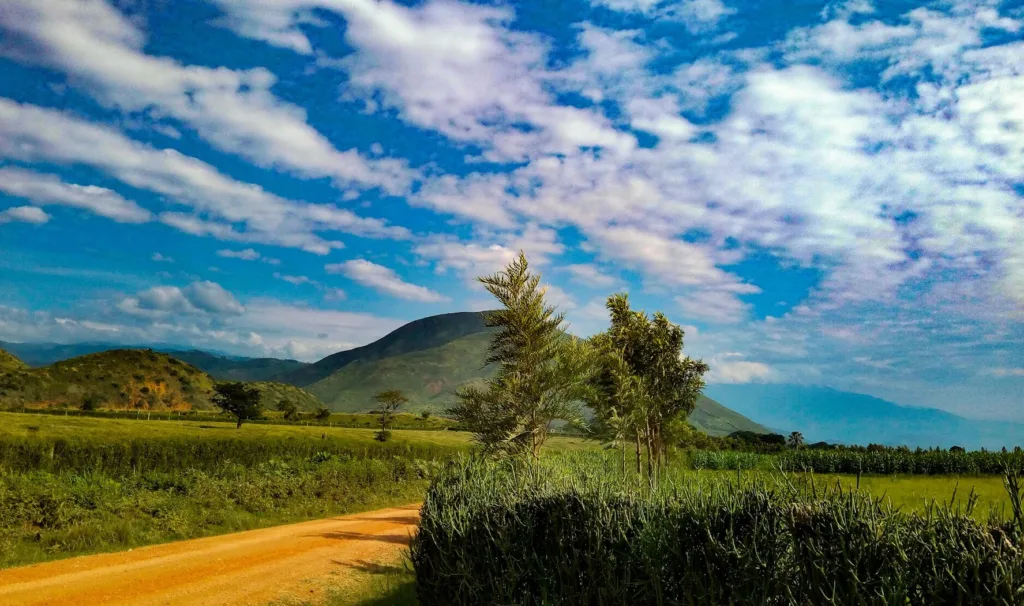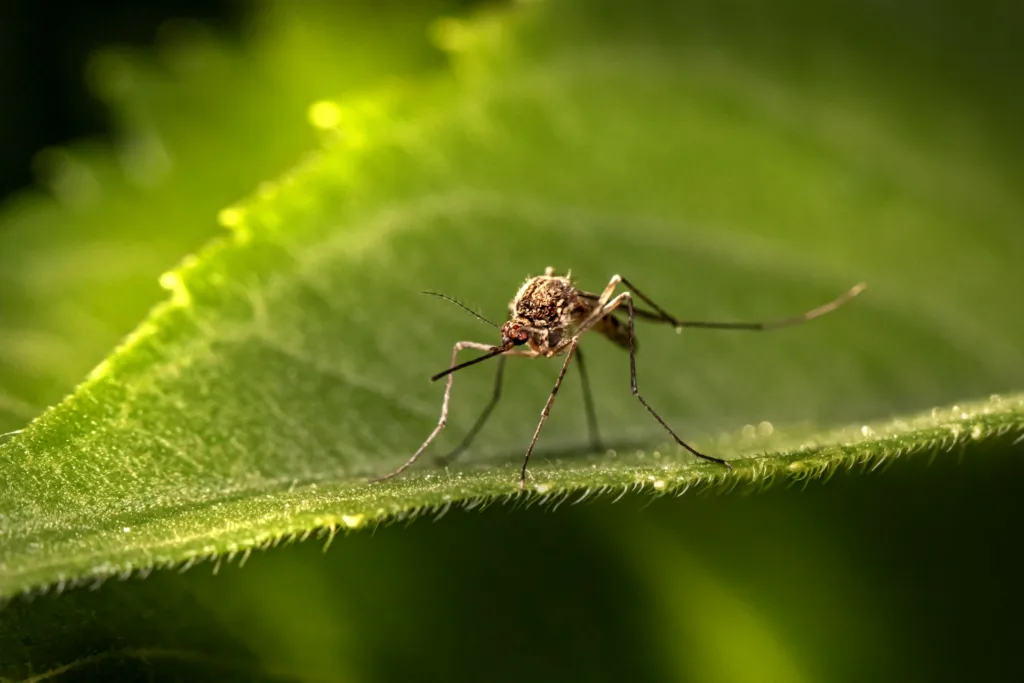There are several countries in Africa with a high risk for malaria contraction – Zimbabwe included.
While residents may have their own protocols and protections against malaria, travelers need to take careful precautions as well.
In this article, we’ll cover what travelers should know about malaria risk in Zimbabwe – along with avoidance and protection strategies to ensure a safe trip.
High-Risk Areas in Zimbabwe
For travelers to Zimbabwe, understanding which regions pose the highest risk for malaria transmission is essential before departing.
Areas near large water bodies, like the iconic Lake Victoria and the Zambezi River, are known for extremely-dense mosquito populations – due to the favorable conditions they offer for mosquito breeding.
The southeastern lowlands of Zimbabwe, characterized by their lush vegetation and tropical climate, also fall into this high-risk category.
However, the risk of malaria is not confined to these regions alone:
- Reports of malaria cases in areas traditionally considered to be at lower risk, such as within urban areas and regions at higher elevations, have occurred as well.
- This highlights the need for continuous preventive measures, regardless of one’s exact location within the country.
- This includes taking universal precautions against malaria (as detailed below) for all travelers to Zimbabwe – not just for those visiting the most commonly identified high-risk areas.
Be Cautious of Environmental Factors That Attract Mosquitos
When traveling to Zimbabwe, being aware of environmental terrains that elevate the risk of malaria is crucial. Malaria thrives in conditions that favor mosquito breeding.
In Zimbabwe, these conditions are predominantly found in areas with abundant water sources and warm, humid climates.
- Regions near water bodies such as the Zambezi River and other marshlands are particularly susceptible to higher mosquito populations.
- The presence of water not only provides a breeding ground for mosquitoes but also supports a habitat rich in vegetation, which can offer mosquitoes places to rest and seek shelter.
- The southeastern lowlands of Zimbabwe, with their tropical climate, are environments where malaria risk is significantly increased due to the optimal breeding conditions for mosquitoes.
Urban areas still present a concern, not because of their natural terrain but due to human-made factors such as stagnant water from poor drainage systems, open containers, and unused pools.
These areas, despite being in urban settings, can inadvertently mimic the natural breeding environments of mosquitoes, thus increasing the risk of malaria transmission.
Ultimately, keep in mind – while certain terrains and environments pose a higher risk, malaria can still be a concern in areas that might traditionally be considered safer. Mosquitos can be very adaptable, which means vigilance is necessary in all areas of Zimbabwe.
Seasonal Changes That Impact Malaria Risk in Zimbabwe
The risk of contracting malaria in Zimbabwe fluctuates with the seasons, increasing significantly during the rainy season when mosquito breeding conditions are optimal.
- This period, extending from November to April, coincides with Zimbabwe’s warmer months, further facilitating the proliferation of mosquitoes.
- The cooler dry season sees a decrease in malaria risk, but it’s important to remain cautious as transmission still occurs.
- Understanding this seasonal variation is crucial, enabling travelers to plan their preventive measures more effectively.
Ultimately, you should be aware if you’re traveling during lower-risk periods, or during the peak malaria season – when heightened precautions are needed.
Key Malaria Prevention Strategies for Travelers
When it comes to avoiding malaria in Zimbabwe, travelers have two primary measures: preventing mosquito bites and taking prophylactic antimalarial medications.
1) Personal Protective Measures Can Help, But Aren’t 100% Reliable
In addition to medication, personal protective measures are essential.
Using EPA-registered insect repellents, wearing protective clothing, and sleeping under insecticide-treated nets are all effective strategies to reduce the risk of mosquito bites.
However, these methods only help – and many health experts recommend travelers seek antimalarial prescriptions to help maximize protection.
2) Obtaining Antimalarial Medication
These medications work by killing the malaria parasite, before you contract the disease.
Options like Atovaquone-Proguanil (Malarone), Doxycycline, and Mefloquine are recommended, with Malarone often preferred for high effectiveness and lower incidence of side effects during travel.
With advancements in telehealth, obtaining a malaria prescription has become easier.
Services like Runway Health offer online consultations and home delivery of medications – helping travelers avoid the hassles of:
- In-person visits and pickups
- Pharmacy stockouts
- Appointment delays
Start Consultation for Malarone ➜
Medications with Runway Health are below-average retail pricing, which makes it easier for travelers to budget for expenses.
Is Zimbabwe’s Healthcare System Prepared for Malaria Treatment?
Yes – Zimbabwe’s healthcare infrastructure is adequately prepared to manage malaria, along with The WHO covering how the country is improving its malaria elimination efforts as well.
Clinics and hospitals in larger cities and towns are well-equipped with the necessary diagnostic tools and treatments for malaria. These facilities often have rapid diagnostic tests and antimalarial medications readily available. For travelers, this means access to reliable care should you suspect you’ve contracted malaria during your stay.
However, the accessibility of such medical services decreases as one moves away from urban centers. In remote areas, healthcare facilities might be sparse or lack the immediate resources to deal with malaria effectively. It’s wise for travelers to prepare contingencies, just in case a trip back to an urban area is needed.
Identifying Symptoms
Understanding the symptoms of malaria—such as fever, sweating, chills, headaches, nausea, and muscle pains—is crucial for early detection and treatment.
These symptoms can mimic those of the flu, making it essential to consider malaria as a potential cause, especially after mosquito exposure in high-risk areas.
Should you begin experiencing symptoms suggestive of malaria, seeking medical attention as swiftly as possible is crucial. For travelers, this means identifying in advance where the nearest healthcare facilities are located, particularly if your itinerary includes remote destinations within Zimbabwe.

